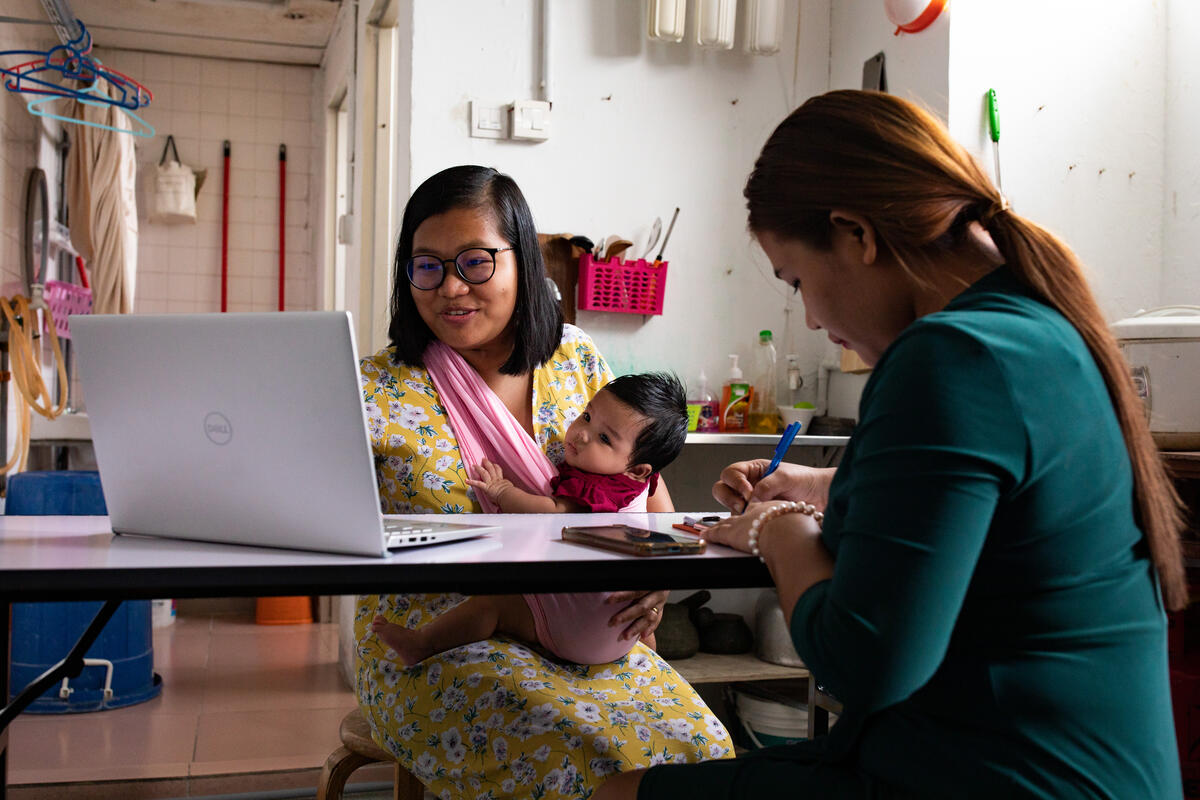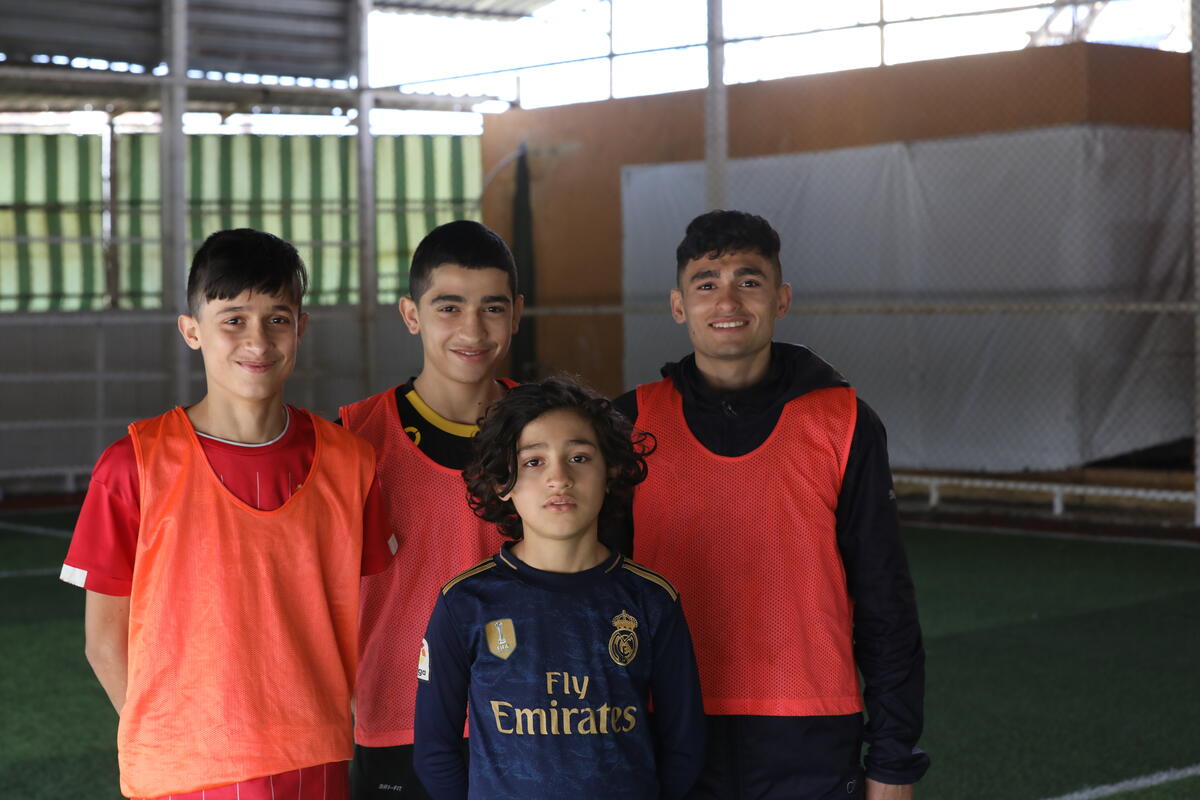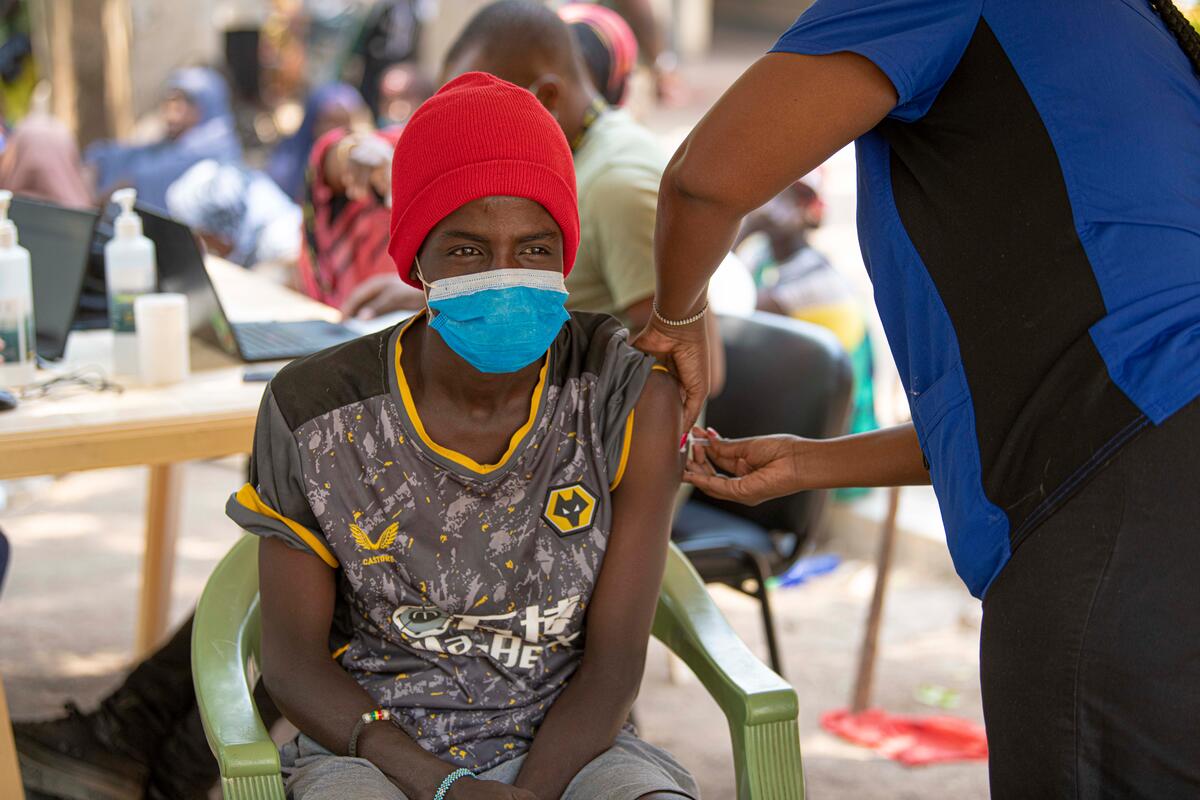UNHCR's South Sudanese staff go the extra mile to help refugees
UNHCR's South Sudanese staff go the extra mile to help refugees

JAMAM REFUGEE CAMP, South Sudan, September 5 (UNHCR) - It's 8:30 at night and a group of refugees have just arrived in South Sudan's Jamam camp from the border with Sudan. They are hungry and exhausted.
Thirty-one-year-old Grace Aleng gets word of their arrival. Although she is preparing to sleep, she knows the needs of the new arrivals because she has experienced them herself. And, as a UNHCR protection officer, she also knows that food and water may not be available to them until the next day.
Aleng gets dressed, heads to the local market and uses her own money to buy something to eat for the newcomers. By 10, she has fed the group. When she sees them sitting before her it is as if she is staring into a mirror. Like the majority of UNHCR staff here, Aleng was herself once a refugee.
"I have the capacity to help and I know where they have been," she says. "So I have no other choice in my heart but to help."
For Aleng and other former refugees, their memories of flight are the strongest source of motivation. They see their work neither as a humanitarian calling nor a career, but as an obligation that each day affirms their humanity. "There is a level of commitment from our South Sudanese staff who were themselves refugees that can only be described as extraordinary," says Kaweh Hagi Negad, a relocation coordinator at Jamam. "They always go the extra mile."
He knows the feeling. Hagi Negad and his family fled Iran in 1987 during the Iran-Iraq war. And while he believes that there is no comparison between his experience growing up in Sweden and that of other staff here who endured their refugee experience in some of the most difficult environments imaginable, he understands the sense of obligation.
"There is a common experience of breaking from roots, leaving family behind and finding yourself in a completely new environment," Hagi Negad says. "You identify with people who have been forced to leave their homes because you know what it's like."
The urge to protect is second nature to Daniel Wuor, who spent 18 years in exile, first in Ethiopia and then in north-west Kenya's Kakuma refugee camp. During a recent mission near the Sudan border, the associate protection officer found himself on the banks of a river speaking with a 22-year-old man who had just fled his home in Sudan's Blue Nile state. The man was stuck on the South Sudan side because he could not swim.

"If he remained there, he would have been exposed," Wuor recalls. "There are hyenas in this area. He could have been tempted to cross the river by himself. I was not going to just stand by. Saving each person is very important."
Wuor, rushed into the water and swam to the other side. Minutes later, with the help of Nathan White, a UNHCR security officer and trained lifeguard, the man was taken to safety along a makeshift rope bridge that the team constructed.
"When I see someone who needs help, I understand that my experience as a refugee was not the only one," the UNHCR staff member says. "I understand that we are many and we are not alone."
It is an empathy that Jamam ambulance driver Ojulu Jodo knows well. During the exodus of 32,000 refugees from Blue Nile state across the South Sudan border, Jodo ferried the sick and injured to a UNHCR transit centre.
"You would see people arrive and they were sick with malaria. They had nothing," said Jodo who lived in Ethiopia's Pinyudo refugee camp between 1990 and 2006. "They would say, 'Look at our children, they are dying.'"
For many of the former refugees working for UNHCR in Jamam, receiving large numbers of people from Sudan's Blue Nile state brings back powerful memories.
Aleng remembers crossing a border to Uganda as an eight-year-old in December 1993. She still has the scars caused by the tall sharp grass that cut her legs as she fled through the fields to escape war.
Christmas arrived a few days later, when they were in Uganda. Aleng remembers seeing a man buy clothing for his daughter. She turned to her father and asked for a dress - something he would do each week when they were in their village in what is now South Sudan's Eastern Equatoria state. When he looked at her with a tear in his eye and said he could not afford it, she first realized she had become a refugee.
By Greg Beals in Jamam Refugee Camp, South Sudan








